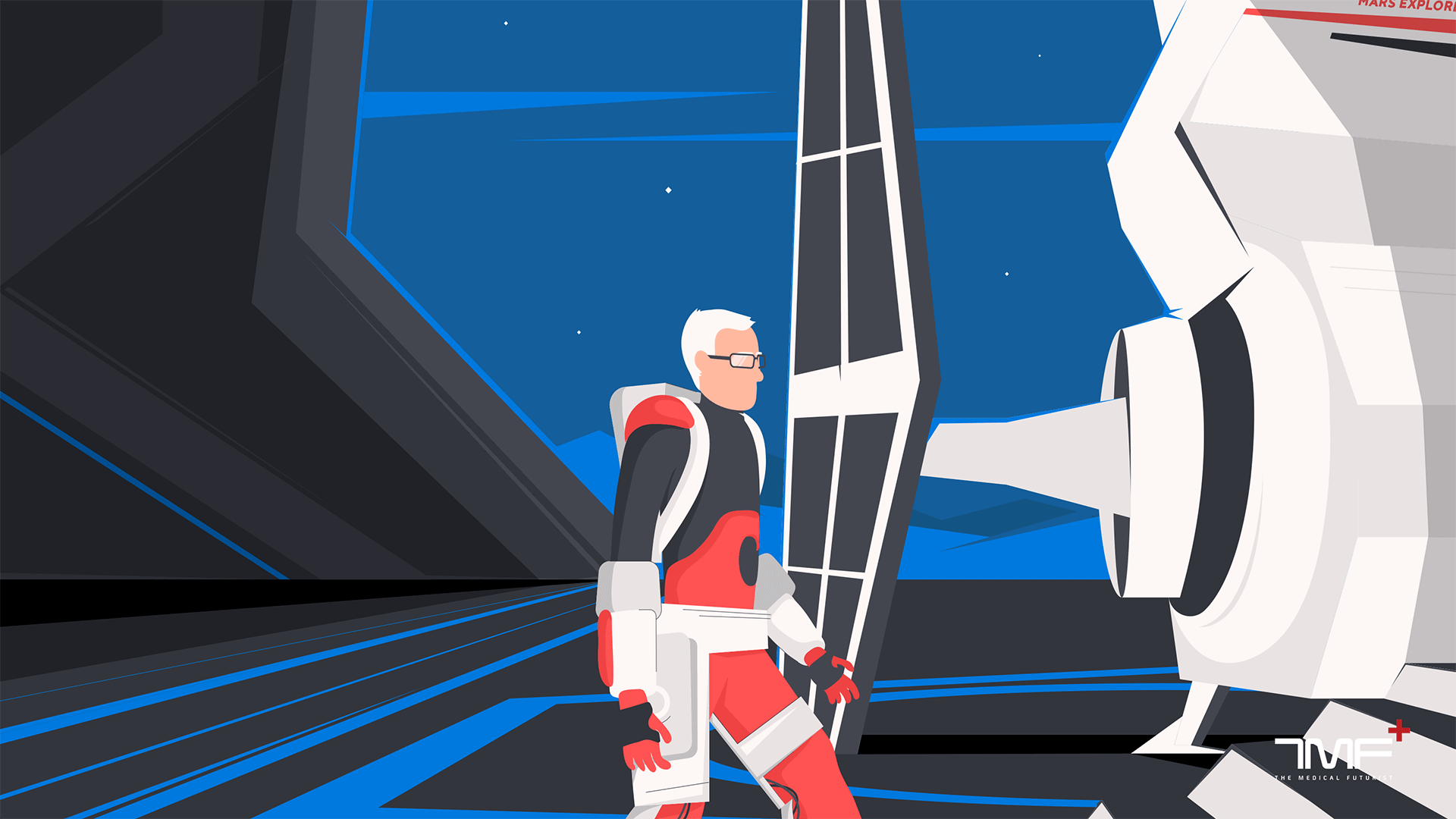
Great Thinkers:
A 100-Year-Old Martian In An Exoskeleton
Interview With The Medical Futurist
Episode 1
What do archaeologists and futurists have in common? Why was the Internet underestimated as a technology to transform society while A.I. is over-hyped? What’s the most transformative concept in healthcare? What are the medical nightmare scenarios that humanity should be afraid of? The editorial team sat down with Dr. Bertalan Meskó, Director of The Medical Futurist Institute and The Medical Futurist himself to talk about the future of medicine, genetics, and many more on the occasion of the launch of the Great Thinkers article series. Read on, live long and prosper.
First thing first. How did Dr. Bertalan Mesko become The Medical Futurist?
I had a dream at the age of six. I received a scientific encyclopedia from my mother from which I learned about the notion that if we don’t understand something, we do research and then we will get a clue about it. I fell in love with the scientific process forever. So, I knew I wanted to become a scientist. Later, it became a bit clearer that it was more about medical science than physics or chemistry. So, I earned my medical degree and then a Ph.D. in genomics, but I felt like my love for technologies was missing from my life.
And when you go in-depth in genetic research, you don’t have a chance to take a look at other areas: artificial intelligence, robotics, sensors, etc. That’s out of your scope. We even had a patent about one of the results we had in a study that would later become a personalized test for patients with cancer where they could just choose the right treatment for them based on their genetic profile. So, the practical recommendations and considerations were clearly there but a decade from then. You make a discovery, if you are lucky maybe in 5-10-15 years, this becomes a reality and gets into practice. But I was quite involved with how A.I., sensors and other technologies have been evolving and I felt like the world will change faster than that. So instead of diving into one, really fantastic cave, but just one cave, I decided to have supervision over 200 caves not at depth, but still, somewhere in the middle.
No comments:
Post a Comment